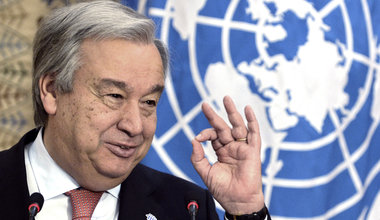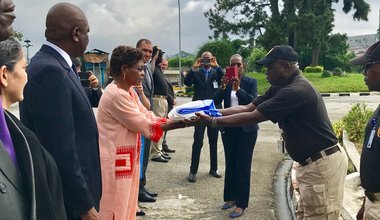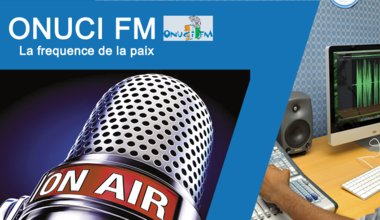OCHA Situation Report No. 1
Toxic waste pollution crisis - Côte d'Ivoire
This report is based on information received from OCHA Côte d'Ivoire and media sources.
Situation
1. According to various sources, toxic substances were dumped from the vessel, 'Probo Koala' during the night of 19 August 2006 at a number of sites in Abidjan, Cote D'Ivoire. Three people have reportedly died and approximately 3000 people have sought health care as a result of inhaling fumes from these substances. Reported health impacts include intestinal and respiratory problems as well as nose bleeds, nausea and vomiting.
2. The Ministry of Health reportedly was advised of the problem by local residents near the sites on 23 August. Apparently, public authorities authorized the dumping of the substances with the belief that it was sewage. Some of the substance is believed to have been damped in the Abidjan lagoon and sewage system. Several of the suspected dumping sites may be close to water sources.
3. National authorities indicate that, based on initial analysis by the Centre Ivorien Antipollution (CIAPOL) and the SIR laboratory, the substances are characterized by an overwhelming odor, consist of approximately 528m3 of matter containing organochlorines and may emit hydrogen sulfide. Pollutants such as hydrogen sulfide are volatile and reach people through the air. Organochlorines belong to the group of persistent organic pollutants that last a long in the environment, accumulate in the food chain and can reach people through multiple pathways (e.g. through drinking water, seafood, etc.). These compounds may also be acutely toxic.
4. It should be noted that there are differing reports on what substances are actually involved in this incident.
5. The Prime Minister has dissolved his Cabinet, apparently in connection with the dumping of the toxic waste.
National Response
6. The Government formed on 28 August a crisis cell to investigate and address the toxic waste pollution incident. This crisis cell is led by the Ministry of Environment, Waters and Forests and includes inter alia the Ministries of Health, Defence and Communications and CIAPOL. The Ministry of Defence has reportedly taken action to secure the contaminated sites, and the Ministry of Communications reports that a communication plan to inform the public is in place. The Government is also using stocks of drugs in order to treat the respiratory and digestive symptoms of the population.
7. National authorities have indicated in meetings with UN officials that they do not have the capacity to assess fully and mitigate the problem.
8. The Government officially requested international assistance at a meeting on 4 September with diplomatic missions.
9. The Government has developed a preliminary funding request for 13.5 million USD and related action plan for short and medium term response. They submitted this during a meeting between the UN Humanitarian Coordinator (HC) a.i., UN and donor representatives and the Ministry of Environment on 6 September. A more detailed emergency plan focusing only on immediate priority needs has been requested by the HC, and will be submitted with an official assistance request.
International Response
10. The European Commission Civil Protection Cooperation Mechanism (MIC) has received a formal request for assistance through the EC Delegation in Abidjan for experts to assess the situation. Accordingly, on 6 September the MIC requested member states to indicate whether they could provide assistance, and whether any assistance they had already provided.
11. The MIC is in contact with France, which has received a bilateral request for assistance regarding the deployment of a 5-member team for an assessment mission expected to take place from 8 - 14 September.
12. The OCHA/ESB Environmental Emergencies Section (EES), in collaboration with the OCHA Coordination of Response Division, is monitoring the situation closely, offered assistance to Cote D'Ivoire through field-based OCHA colleagues, and has alerted the European Commission and possible donors in French speaking countries to the reported problem.
13. In the event of a request for assistance from national authorities, EES would work with international partners to mobilize technical support to identify and mitigate problems, depending on the specific needs and nature of the request. EES has agreed with the MIC that they will undertake any assessment/mitigation activities in close collaboration.
14. The Secretariat of the Basel Convention received a request for assistance on 25 August 2006, and the Secretariat has responded positively. There is scope for some assistance from the Basel Convention trust fund, if an application is made by Cote d'Ivoire in accordance with Conference of Parties rules.
15. A task force led by the HC a.i. is working with national authorities to map and carry out field assessment missions to some of the sites.
16. The UNDP Bureau for Crisis Prevention and Recovery has released 50,000 USD to the UNDP Resident Coordinator's office to assist with the coordination of the response.
17. OCHA Geneva has been in contact with OCHA Côte d'Ivoire and will revert with further information as it becomes available.
 ONU
ONU Nations Unies Maintien de la paix
Nations Unies Maintien de la paix




